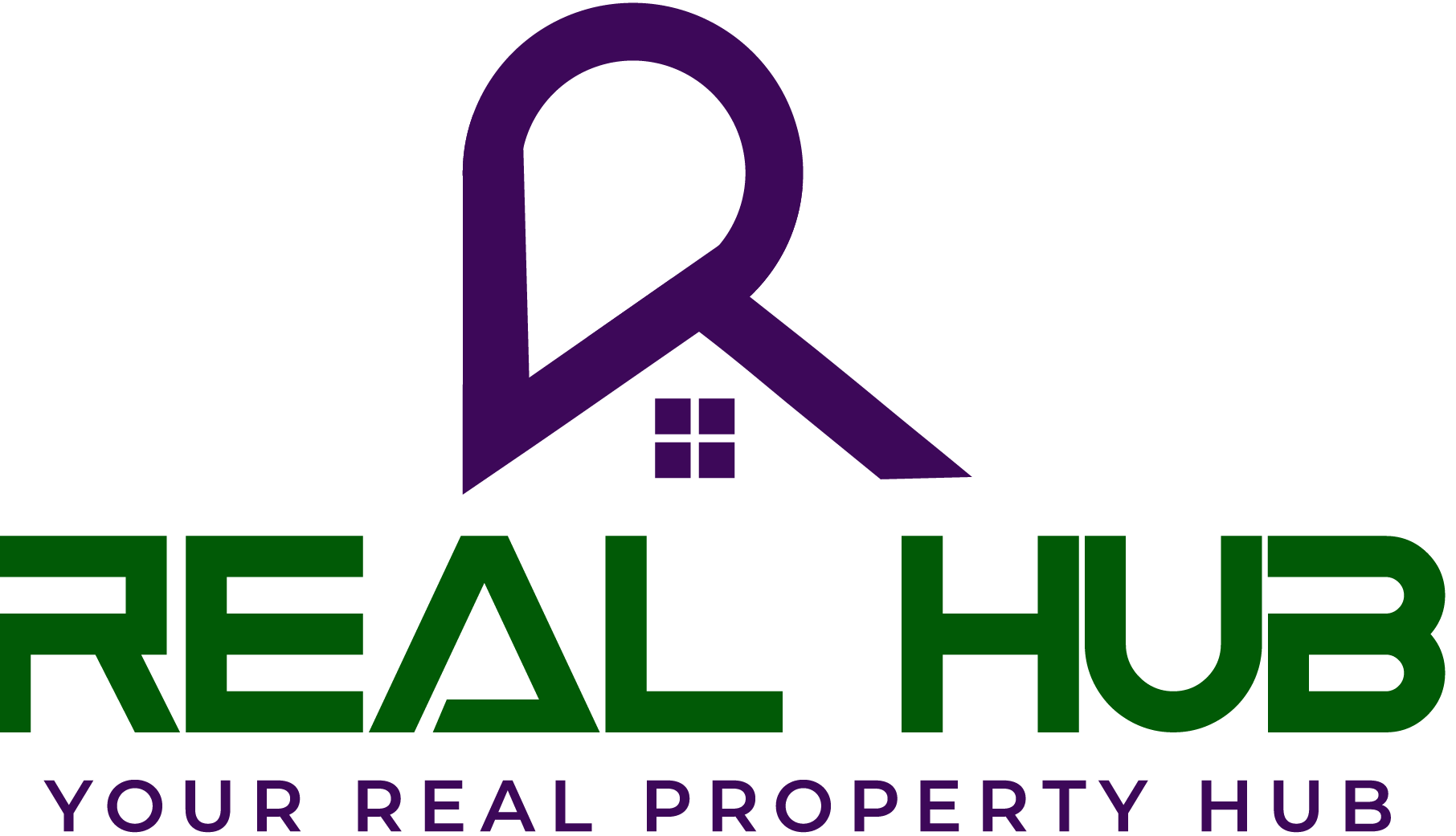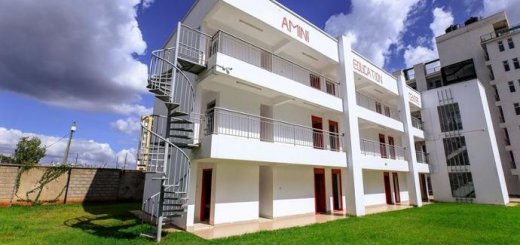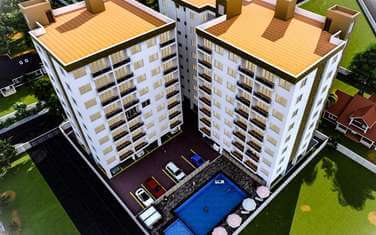Ultimate Guide to Buy a House in Nairobi | Navigating Nairobi’s Housing Market
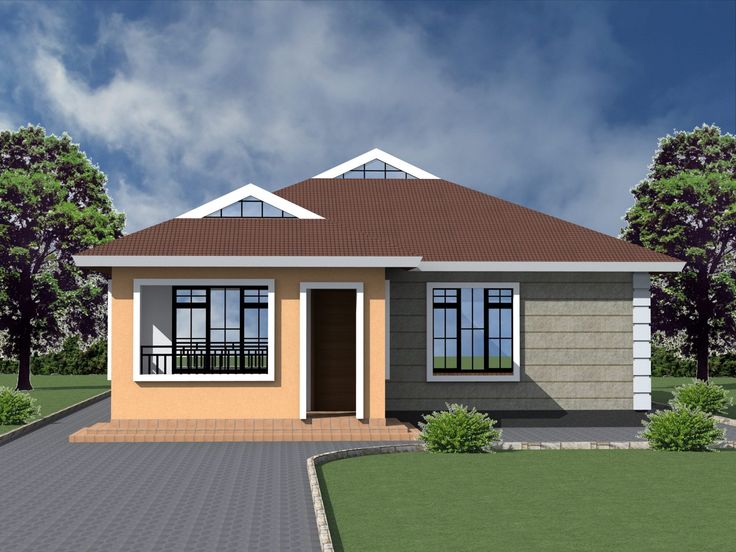
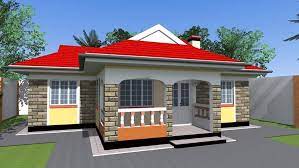
Buy a House in Nairobi
In recent years, Nairobi, the capital city of Kenya, has attracted many prospective homeowners. The city offers a mix of modern urban living alongside lush green parks, cultural hotspots, and vibrant social scenes. This guide aims to provide detailed insights into how to buy a house in Nairobi, touching upon the types of houses available, popular neighborhoods, and important considerations.
Housing Types in Nairobi
Nairobi, the vibrant capital city of Kenya, offers a diverse array of housing options to fit various lifestyles and budgets. Whether you’re looking to buy a house in Nairobi in a bustling city center or a serene suburb, you’ll find a wide range of options to choose from.
Apartments
Apartments are a popular choice for many looking to buy a house in Nairobi. Especially in bustling city areas like Westlands and Kilimani, apartments offer a compact and convenient lifestyle. Ranging from studio units to luxurious penthouses, apartments in Nairobi cater to single professionals, young couples, and even small families. Many apartment complexes come with added amenities like a swimming pool, gym, or a playground, enhancing urban living’s appeal.
Townhouses
For those who want a balance between the convenience of city living and the spaciousness of a suburban home, townhouses are a fantastic option when planning to buy a house in Nairobi. Townhouses often come in clusters, each with multiple floors and a small yard. Neighborhoods such as Lavington and Karen are popular for townhouses, providing residents with a sense of community while offering ample private space.
Villas
Villas or detached houses are ideal for those who value privacy and space and are looking to buy a house in Nairobi. These types of homes typically come with expansive yards and are located in quieter, suburban parts of the city. Villas offer the opportunity for customization and often have multiple bedrooms, making them suitable for larger families. Neighborhoods like Karen and Muthaiga are well-known for their upscale villas.
Bungalows
Bungalows offer single-story living and are another great option when looking to buy a house in Nairobi. These homes provide easy access to all rooms without the need for stairs, making them ideal for families with young children or elderly members. Bungalows often come with private yards, giving homeowners the opportunity to create lush gardens or outdoor entertainment spaces. They can be found in various Nairobi neighborhoods, each with its unique charm and community feel.
Neighborhoods in Nairobi: Choosing the Right One
One of the key factors to consider when you decide to buy a house in Nairobi is choosing the right neighborhood. Nairobi is divided into several neighborhoods, each with its unique attributes, facilities, and community vibe.
For instance, Westlands is known for its commercial hubs, modern residential complexes, and vibrant nightlife. Karen, on the other hand, is characterized by its tranquil environment, large homes, and proximity to nature. The choice of neighborhood largely depends on individual preferences, lifestyle, and work location.
Things to Look for When Buying a House in Nairobi
When you decide to buy a house in Nairobi, it’s essential to have a checklist of factors to consider. These considerations can help you find the perfect home that suits your needs, lifestyle, and budget. Below are some of the key things to look for during your house-hunting journey in Nairobi.
Location
The old adage, “location” holds true when you plan to buy a house in Nairobi. The city is a tapestry of various neighborhoods, each with unique features and characteristics. Your chosen location should align with your lifestyle preferences, commute time, and proximity to essential amenities such as schools, healthcare facilities, shopping centers, and recreational spots.
Security
Security is a primary concern when you decide to buy a house in Nairobi. Make sure to research the security conditions of your chosen neighborhood. Many prospective homeowners prefer gated communities with round-the-clock security services. Additionally, consider the safety features of the house itself, such as alarm systems, reinforced doors, and security lighting.
House Condition
Inspecting the physical condition of the house is a must when planning to buy a house in Nairobi. This includes the structural integrity of the building, the condition of the roof, plumbing and electrical systems, and signs of dampness or pest infestation. It’s advisable to hire a professional home inspector to get a comprehensive understanding of the house’s condition before making your purchase.
Value for Money
Understanding the real estate market prices in your chosen location will help you ensure that you’re getting value for your money. When you set out to buy a house in Nairobi, compare the asking prices of similar properties in the area. Consider factors like the size of the house, the land it’s built on, its condition, and the amenities it offers to evaluate if the price is fair.
Future Growth Prospects
While a house is a place to call home, it’s also an investment. Therefore, when planning to buy a house in Nairobi, consider the potential growth prospects of the area. Areas with ongoing or planned infrastructure developments are likely to appreciate in value over time. Research on upcoming projects such as roads, shopping malls, schools, and hospitals can provide insight into future growth prospects.
Legal Clearances
Finally, legal clearances and paperwork are paramount when you decide to buy a house in Nairobi. Ensure that the property has a clear title, free of any legal disputes. Additionally, the house should comply with all local building regulations and codes. Hiring a professional lawyer can help you navigate through the legal aspects of buying a house, ensuring a smooth and transparent transaction.
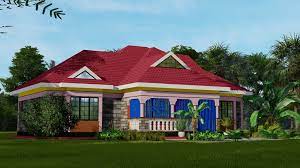
The Role of Real Estate Agents in Nairobi’s Housing Market
When looking to buy a house in Nairobi, a real estate agent’s role is often indispensable. These professionals bring a wealth of experience and extensive knowledge about the housing market, ensuring buyers navigate the process effectively and efficiently.
Real estate agents act as the liaison between buyers and sellers, reducing the stress associated with property transactions. As a buyer seeking to buy a house in Nairobi, you’ll first communicate your needs and preferences to your real estate agent. These preferences can cover everything from the type of house you desire, the preferred neighborhoods, your budget, and other specific requirements you may have.
Based on your criteria, the real estate agent will then search for properties that match your needs. They have access to multiple listings and a wide network of contacts, enabling them to find suitable houses that you may not come across in public adverts. This can save you considerable time and effort in your quest to buy a house in Nairobi.
Once potential houses have been identified, your real estate agent will organize property viewings. They will accompany you to these viewings, where they can offer expert insight into the property’s value, its pros and cons, and how it compares to other houses in the same price range or neighborhood. This knowledge can be invaluable, especially if you are unfamiliar with the Nairobi housing market.
Negotiating the purchase price is another crucial role that real estate agents play when you plan to buy a house in Nairobi. With their understanding of the housing market and expertise in negotiation, they can help you secure a fair price for the property. They can also advise you on the best approach to take during negotiations, based on their experience with the local market and knowledge of prevailing market conditions.
Real estate agents also assist with the legal aspects of buying a house. They can guide you through the paperwork, ensure you fulfill all legal requirements, and help you avoid common pitfalls. This guidance can be crucial, especially considering the complexities of property law in Nairobi.
After the deal is finalized and you’ve successfully managed to buy a house in Nairobi, the real estate agent’s role doesn’t end. They can offer advice on property management, potential home improvements, and even help you integrate into your new neighborhood.
Legal Considerations When Buying a House in Nairobi
When embarking on the journey to buy a house in Nairobi, one must consider several legal aspects to ensure a transparent and smooth property purchase. These legal considerations not only protect the buyer from future disputes but also affirm the legitimacy of the transaction.
One of the first legal factors to consider when you plan to buy a house in Nairobi is the verification of the property’s legal documents. Primarily, this involves confirming the authenticity of the land title deed. The title deed serves as proof of property ownership and rights over the land. It’s essential to verify that the seller holds a legitimate title deed to the property and is legally allowed to sell it.
Additionally, when you’re looking to buy a house in Nairobi, it’s important to ascertain whether the property has any legal disputes or liens associated with it. It’s prudent to perform a thorough search at the Land Registry to confirm that the property is free from any encumbrances or pending legal issues. This could include anything from disputes over land boundaries to unpaid debts that could potentially be transferred to the new owner.
Another significant legal aspect to consider when planning to buy a house in Nairobi is compliance with local building regulations and zoning laws. Different zones in the city have different regulations regarding the type of buildings that can be constructed, the height of the structures, and how the land can be used. Make sure the house you intend to buy complies with these laws to avoid future legal issues.
When you buy a house in Nairobi, it’s essential to have a proper sale agreement in place. The sale agreement is a legally binding contract between the buyer and the seller outlining the terms and conditions of the sale. It includes details about the price, payment terms, and any other conditions for the sale. Both parties must agree to these terms, and any breach of the agreement can have legal consequences.
Lastly, the legal process of transferring property ownership in Nairobi is a crucial consideration when buying a house. This involves the preparation and signing of the transfer document by both parties, payment of stamp duty, and registration of the transfer at the Land Registry. It’s recommended to seek professional legal help during this process to ensure all legal requirements are met.
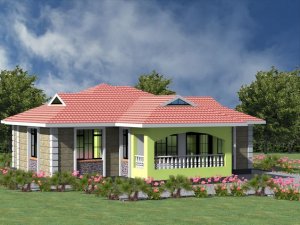
Market Trends in Nairobi’s Housing Sector
When looking to buy a house in Nairobi, it’s crucial to understand the current market trends in the city’s housing sector. Several influential factors can impact your buying decision, from housing prices to the popularity of specific types of properties and technological advancements in the sector.
One of the key trends in Nairobi’s housing sector is the growth of gated communities, particularly in suburban areas. These gated communities offer a sense of security, community living, and often come with amenities like shopping centers, schools, and healthcare facilities. This all-in-one solution is particularly appealing to those wanting to buy a house in Nairobi, especially families looking for a secure, self-contained living environment.
Another prominent trend is the rising demand for eco-friendly homes. Nairobi’s residents are becoming increasingly conscious about their environmental impact, driving a demand for homes that incorporate green technologies, such as solar panels, water recycling systems, and energy-efficient appliances. This shift towards sustainable living could influence your decision if you’re planning to buy a house in Nairobi in an eco-conscious manner.
Additionally, the trend of urbanization continues to shape the housing market in Nairobi. As more people move to the city in search of employment opportunities, there’s a growing demand for affordable housing close to commercial hubs. This has led to the development of high-rise apartments and condominiums, providing cost-effective housing solutions for the urban workforce. So, if you’re looking to buy a house in Nairobi close to your workplace, these developments might cater to your needs.
The influence of technology on the housing market in Nairobi cannot be understated. Digital platforms for real estate listings have transformed the way people search for properties. Now, anyone looking to buy a house in Nairobi can browse through numerous options online, compare prices, view photos, and even take virtual tours. This use of technology has made the buying process more transparent and convenient, allowing potential buyers to shortlist properties that meet their criteria before arranging for physical viewings.
In the future, as Nairobi continues to develop and grow, we can expect further trends to emerge in the housing market. Factors such as government housing policies, infrastructure developments, and changes in the city’s demographic profile could all have a significant impact on the market.
Nairobi’s Housing Market Post-Purchase: Maintenance and Management
The journey to buy a house in Nairobi doesn’t end with obtaining the keys to your new home. In fact, becoming a homeowner is just the beginning of a new phase – maintenance and management of your property. This is a crucial aspect that needs thoughtful planning and execution to ensure your home remains in excellent condition and continues to serve your needs over the years.
One of the first steps after you buy a house in Nairobi is to understand the role of homeowners’ associations, especially if your house is located within a gated community or a residential complex. These associations often take charge of maintaining common areas, overseeing security, and organizing community events. As a homeowner, you’ll need to contribute to this via association fees. The extent and frequency of these fees can vary based on the rules set by the specific homeowners’ association.
Maintenance of the house itself is another critical responsibility that comes into play once you buy a house in Nairobi. This includes regular care of structural elements like roofing and walls, electrical systems, plumbing, and any included appliances. Seasonal checks and repairs, where necessary, can prevent minor issues from turning into major problems down the line. If your house comes with a yard or a garden, maintaining that space will also become a part of your routine.
Management of utilities is another aspect to consider post-purchase. Ensuring that services like water, electricity, and internet are running smoothly is crucial for a comfortable living experience. Each of these services may come with its own set of bills and maintenance needs.
When you buy a house in Nairobi, it’s also important to account for potential renovation costs. Over time, you may wish to make alterations or improvements to your house to match your evolving needs or to keep up with modern design trends. These renovations can range from small projects like painting or changing fixtures to larger ones like remodeling rooms or adding extensions.
Finally, every homeowner in Nairobi should be aware of property taxes imposed by the county government. These are annual taxes based on the value of your property and must be paid in order to avoid penalties. It’s essential to understand how these taxes are calculated and budget for them accordingly.
Conclusion
To successfully buy a house in Nairobi, understanding the housing market, neighborhoods, and legal aspects is key. While the process can seem daunting, careful planning and professional guidance can make it a rewarding experience. Despite its challenges, the dynamic Nairobi housing market continues to offer a variety of options catering to diverse preferences and lifestyles.
FAQs About Buy a House in Nairobi
What are the key considerations when buying a house in Nairobi?
When purchasing a house in Nairobi, consider aspects like location, proximity to amenities, security, future development projects, and the price trends in the area to ensure that your investment is sound.
What types of houses are available for purchase in Nairobi?
Nairobi offers a variety of housing options including apartments, townhouses, bungalows, and villas, among others. Each of these comes with different features and pricing to cater to varied preferences and budgets.
How can I verify the legitimacy of a listed house for sale?
You can validate the authenticity of a listing by conducting a property search through the Ministry of Lands, ensuring that the property exists, and the seller is the legal owner. Additionally, physically visit the property and engage professional services like a lawyer or real estate agent.
What is the typical process of buying a house in Nairobi?
A standard house-buying process involves identifying a suitable house, verifying ownership, negotiating the price, paying the agreed amount, and finally transferring the title deed under your name. Each step should be conducted meticulously to avoid future disputes.
Is it possible to negotiate the price of a house in Nairobi?
Yes, price negotiations are a common practice in the Nairobi real estate market. Ensure that you have done adequate research on the prevailing market rates and be ready to present your case effectively during negotiations.
Are there gated communities available in Nairobi?
Nairobi has several gated communities which provide enhanced security and shared amenities like swimming pools, play areas, and recreational facilities. These can be found in various suburbs and offer different house types and pricing points.
Can non-residents or foreigners buy a house in Nairobi?
Yes, non-residents and foreigners can purchase property in Nairobi. However, it’s advisable to understand the legalities involved and perhaps engage a local lawyer or real estate expert to navigate through the process efficiently.
What additional costs should I expect when buying a house in Nairobi?
Apart from the purchase price, anticipate extra costs such as stamp duty, legal fees, valuation fees, and potentially agent commissions. These costs can add a significant amount to your total expenditure, so it’s wise to account for them in your budget.
How do I ensure the house is in good condition before purchasing?
Engage a professional property inspector to scrutinize the condition of the house. They will evaluate aspects like the structural integrity, plumbing, electrical systems, and overall maintenance, ensuring that you’re not investing in a property that will incur hefty repair costs.
